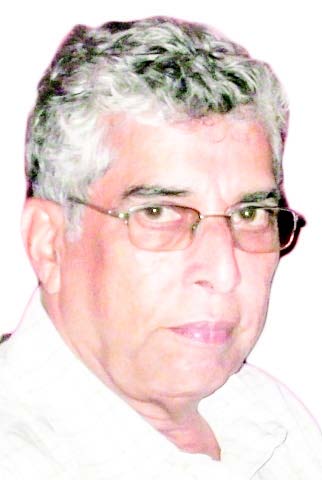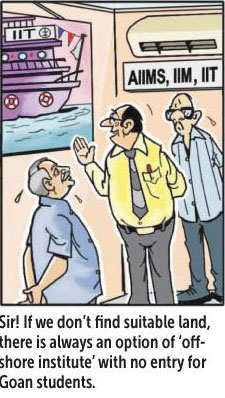
Jose Maria Miranda
Elections in India have always been the greatest democratic exercise in the world. With 969 million voters, who represent 10% of world’s population and four times the number of eligible voters in the world’s next largest democracy, the USA, and 18 million youth exercising the franchise for the first time, India is surely proud of having upheld democratic traditions of conducting free and fair elections even in the remotest corner of the country.
Notwithstanding muscle and money power used at election time, India continued to be a vibrant democracy, though booth capturing would be an unpleasant occurrence often, where the controlling authorities wouldn’t dare interfere. I understand that this is no longer happening, with the introduction of EVMs
The elections are no longer as they were in the past. They are now held under a cloud of suspicion and distrust. People doubt the EVMs, the VVPATs, the ink, etc.
In 2014 people gave BJP, a thumping majority, despite the secular forces’ apprehensions of the saffron brigade. Voters were also disillusioned and frustrated with a fatigued Congress & UPA, who were also perceived as highly corrupt. The India Against Corruption movement helped in the humiliating defeat of Congress. People were lured by Modi’s attractive promises, like reduction in prices of essential commodities, petrol, diesel and gas, return of black money, which never got fulfilled.
Behind the veneer of progress, which is visible, especially in infrastructure, it is evident that, in the last ten years, Modi brought disrepute to the country with his repressive measures, dictatorial ways and communal rhetoric, which have attracted world attention and put people on guard against a possible undeclared Emergency.
The Government did not hesitate to muzzle and partly destroy the Opposition, so as to regain power. It partly succeeded, but this also galvanized the Opposition into coming together, despite ideological differences, focused solely on ousting the BJP.
Using their brute majority in Parliament and suspending Opposition members, the Govt passed controversial laws without discussions. Among many questions one needs to ask, one wonders why the Government changed the law to accommodate as Chairman of National Human Rights Commission, Arun Kumar Mishra, who had praised Modi, when he was a SC Judge – why Modi felt uncomfortable with CJI being part of Committee for appointing the Election Commission of India, and changed the selection law – why he took Ordinance routes to extend terms of CBI & ED Chiefs – why ED raids and arrests only Opposition leaders and spares those on ruling side or those who quickly shift under threats – how even some Court cases against Opposition leaders, come up on the eve of elections, whereas those against Goa Ministers and many others drag for years.
These are only few samples of Modi’s disdain for democracy, impartiality and transparency and his desperation in winning these elections to further tighten his grip on his detractors. No matter how unbiased one tries to be, there are no plausible explanations to these and many other questions, which could fill volumes.
The persistent efforts at having “double engine sarkars” in every State, the poaching of MLAs and overthrowing of State Governments to achieve this end, by lure of money and/or development or keeping swords on their heads, only reinforced the view that the BJP is attempting one Party rule and elimination of Opposition with arrests and harassment of its leaders. The crave for 400 par, confirmed by some BJP stalwarts, as being an effort at changing the Constitution, has further strengthened people’s resolve to dethrone the BJP
Intellectuals, writers, Judges, lawyers and other professionals have been extremely vocal against Government attempts at misusing independent agencies and laws which aim at instilling fear in people, stifling dissent and winning elections by hook or by crook.
Noted writer and Coordinator, Citizens Commission on Elections, M G Devasahayam, claims that, in the past, he “celebrated India’s electoral process in the face of usual Western suspicions and Eurocentric standards” and ”fiercely defended the Election Commission of India against attacks of vested interests”.
He now says that “for the first time in its history, India’s elections are under international scrutiny and laments “that things have come to such a sorry pass is a travesty for India’s electoral democracy”..
Popular political commentator, Yogendra Yadav forecasts that “2024 is going to be the least free and fair national election in Independent India” He feels that it may “eventually turn out to be a seriously compromised election or a complete farce. Going by recent developments it seems fairly certain that this election would slide below the minimum threshold of a credible election”.
In Goa, we have already sealed the fate of the candidates. The choice of Capt Viriato Fernandes, as INDIA bloc’s candidate for South Goa, could not have been better and more appropriate. Leaving aside his qualifications, as a Mechanical Engineer and retired decorated Naval Officer, Captain’s active involvement and explanations on issues concerning Goa, voiced at protests and agitations, earned him the esteem of the people, who made him a preferred candidate over other contestants.
However, Viriato’s greatest asset is that he carries no baggage with him, unlike most of the candidates that parties generally put up for Parliament and Assembly. It has been extremely rare for the Congress to present such a clean and meritorious candidate, with high degree of competence and integrity. We hope he wins, for if he doesn’t, the loss will be ours and not his.
On the other hand, BJP’s South Goa candidate belongs to the elite class and seems to have little knowledge about Goa’s problems. She gave herself away when she candidly remarked that she would follow the dictates of the CM.
This was disappointing, for she should know what people’s grievances are, so as to present them to the Centre. Sadly, for her, the CM himself is responsible for following the directives of the Centre, much to the disgust of the people, solely to retain his chair.
Let us keep our fingers crossed and await the results, which will show whether we voted for democracy and unity or for dictatorship and divisiveness.
(The author is a retired banker)
